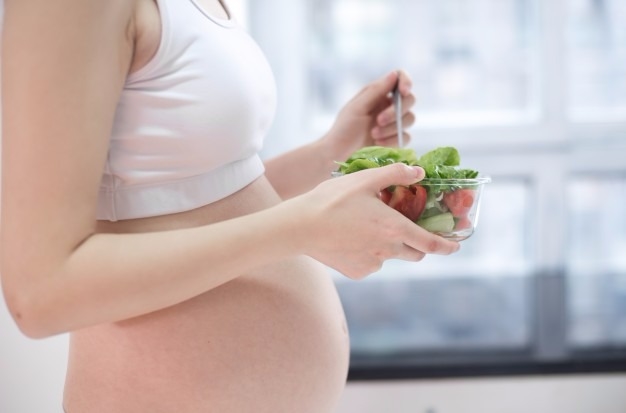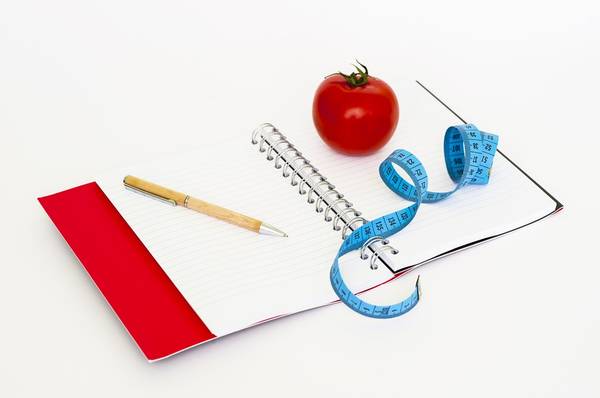
Guide To Healthy Diet During Pregnancy
1 Dec 2017 | 8 min Read
Babychakra
Author | 1369 Articles
It is crucial to follow a balanced diet during pregnancy as it keeps your health in-check, and ensures that you receive all the right nutrients to support the development of your growing baby. You can plan your daily pregnancy food diet chart under the guidance of a nutritionist or a physician, depending on your needs.
Having a diet plan with nutritious food for pregnant women has an added benefit too: it makes grocery shopping way easier and you do not even have to worry about planning your next meal. Let’s understand what to eat during pregnancy and which foods to avoid during pregnancy, in detail. Keep on reading.
Follow A Healthy Pregnancy Food Eating Pattern

Diet plans are tailored depending on an individual’s needs, to suit their health status. Some examples of tailored diet charts are as follows: diet chart for diabetes, diet chart for gym enthusiasts, diet chart after the gym, diet chart after delivery, diet chart for heart patients, diet chart to gain weight, and diet chart for cholesterol control. Below is a diet chart that will be useful for expecting mothers:
Food For Pregnant Women Diet Chart
Having a nutritious and well-balanced diet is one of the most important things for pregnant women, as it helps meet the additional requirements of the growing baby. Here is an example of a diet chart for healthy food for pregnant women:
- Milk and milk products: The daily calcium requirement of a pregnant and lactating mother is around 800-1000 mg. Thus, dairy products play an important nutritional role and should be incorporated in your meal plan. You can add whole or skimmed milk, yogurt, buttermilk, cheese, and cottage cheese (paneer) in your diet as they are rich sources of calcium, proteins and vitamin B12.
- Pulses, dals, cereals, whole grains and nuts: Proteins are your body’s building blocks and are required for daily wear and tear. This requirement increases during pregnancy. Thus, include pulses, dals, cereals, nuts, and whole grains in your everyday pregnancy food diet to make up for your body’s protein requirements.
- Fruits and vegetables: Include lots of fresh fruits and vegetables in your regular diet as it will help meet your body’s fiber, vitamins and minerals needs. Try to have about five servings of each on a daily basis.
- Fish, meat and poultry: eat and fish provide your body with adequate amounts of protein. Fatty fish like salmon and cod are high in omega 3 fatty acids which are heart-friendly and equally important for your growing little one. Eggs are also a great source of healthy fats and protein. You can have 2 eggs each day during pregnancy.
- Liquids: During pregnancy, additional liquids are needed to keep you hydrated all the time. Drink as much as 3 litres of liquids throughout the day. You can hydrate yourself with water, juices, buttermilk, coconut water, and beverages like tea, and a small cup of coffee.
- Fats: Fats provide the energy required to support your growing baby as well as prepare your body for delivery. Vegetable oil is a good source of unsaturated fats and is good for your health. However, on the other hand, food items like butter and ghee (clarified butter) have high levels of saturated fats and should be consumed in small amounts.
Eat 8 To 12 Ounces Of Seafood Each Week
According to a 2,000-calorie diet, ideally, you should eat at least 8 ounces of seafood each week (less for children). But if you’re pregnant, you should consume 8 to 12 ounces of seafood each week. Seafood includes fish and shellfish, which are good sources of protein, iron, and zinc. These minerals are also great for your baby’s development. Many fish include omega-3 fatty acids, including docosahexaenoic acid (DHA) and can help boost your baby’s brain development.
Take Prenatal Vitamins With Folic Acid, Iron, And Iodine Every Day
Prenatal vitamins are multivitamins for women who try to get pregnant or are pregnant. They have more of some nutrients that you need during pregnancy than a standard multivitamin. All nutrients are important but some of the nutrients such as folic acid during pregnancy, iron, iodine, calcium, vitamin D, and DHA play a vital role in the baby’s growth and development during pregnancy. You should take a prenatal vitamin with 600 mcg of folic acid every day during pregnancy and 27 milligrams of iron each day. And to strengthen the bones and muscles of your baby, make sure to take 1000 milligrams of calcium each day.
Get The Right Amount Of Calories For You
One of the most essential steps to ensure your baby gets all the nutrition he/she requires throughout pregnancy is by watching your calorie consumption. Before becoming pregnant, if your weight is within a normal or average limit and you’re somewhat active, your suggested daily consumption should be around 2,000 calories. During your first trimester, you probably won’t need any additional calories . But, you will need to focus on consuming a well-balanced diet to boost your metabolism.
During the second-trimester diet, you will need to increase your daily calorie intake by 300 to 350 calories. You can do it by adding two glasses of skim milk and a bowl of oats every 3-4 days a week. And in the third trimester, you’ll require an additional 450-500 calories each day to maintain the health of you and your baby.
Foods To Avoid
When you are pregnant, you will have to avoid certain pregnancy foods. If you’re a huge fan of coffee, this might be a genuine bummer for you. While there are certain foods that you can consume in limited amounts, others should be completely avoided during pregnancy. Here are some of the pregnancy foods to avoid or limit.
- Avoid high mercury fish as it has a high toxic element, which is harmful for the baby Undercooked or raw fish
- Caffeine
- Processed meat
- Raw eggs
- Raw sprouts
- Dairy products like cheese
Limit Caffeine and Added Sugars
Limit your daily caffeine intake to less than 200 mg. Caffeine is believed to cause the tightening of blood vessels in the uterus and placenta and reduce blood flow to the foetus, and inhibit development.
You should avoid excess consumption of added sugars as well. It can cause high blood sugar levels and create complications all over your body. It has the potential to harm blood vessels and nerves. And it can also injure the eyes, kidneys, and heart. High blood sugar during pregnancy might also cause birth abnormalities in the developing infant. So, it is highly recommended to limit the intake of sugars.
Alcohol
Drinking alcohol while pregnant raises the chances of miscarriage. It can also have an impact on your kid after they’re born. If you drink alcohol while pregnant, your baby may also develop a dangerous illness known as Fetal Alcohol Spectrum Disorder (FASD). So, avoid drinking alcohol during pregnancy.
Preparing Food Safely
During pregnancy, you will need to ensure certain things to maintain the health of your baby in the womb. For that, when possible, eat pregnancy super foods that are freshly cooked. Avoid refrigerated, ready-to-eat items that have been sitting out for an extended amount of time. While making meals, maintain proper hygiene and use clean utensils. Wash all raw veggies and fruits well to make sure there are no germs. For raw meats, use a separate chopping board.
Recommended Servings
The recommended servings during pregnancy should be around 6-11 servings of bread and grains, 2-4 servings of fruit, 4 or more servings of vegetables, 4 servings of dairy products, and 3 servings of protein sources (meat, poultry, fish, eggs or nuts). Consume fats and sweets in moderation to maintain your overall health during pregnancy.
Takeaway
Your taste for some meals may change during pregnancy. You may find that you suddenly loathe meals that you liked before pregnancy. However, if you have any issues that hinder you from eating balanced pregnancy foods and gaining weight healthily, consult your doctor to get the best advice to maintain your body throughout pregnancy. You can also check out the role of bitter gourd in pregnancy along with what to eat in first trimester in pregnancy to get the most information and prepare yourself accordingly.
Disclaimer: The information in the article is not intended or implied to be a substitute for professional medical advice, diagnosis or treatment. Always seek the advice of your doctor.
Also Read: The ‘real’ foods that power your baby during pregnancy
Related Articles:
Healthy Diet: Eating healthily during pregnancy will help your baby to develop and grow and optimally. Here’s all the know-how!
Healthy Diet During Pregnancy: Healthy eating keeps you feeling good and gives your baby the essential nutrients they need in the womb. Check out more about the importance of a healthy diet during pregnancy.
A


Related Topics for you
Suggestions offered by doctors on BabyChakra are of advisory nature i.e., for educational and informational purposes only. Content posted on, created for, or compiled by BabyChakra is not intended or designed to replace your doctor's independent judgment about any symptom, condition, or the appropriateness or risks of a procedure or treatment for a given person.
